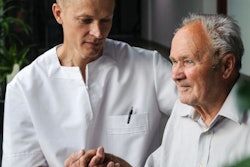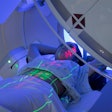
We're learning more about how oral health can influence overall health, but can preoperative dental care reduce postoperative complications in patients undergoing cancer surgery? Researchers reviewed data from more than 500,000 patients from Japan to find out.
They found that oral care from a dentist before the operation was significantly associated with a decrease in cases of postoperative pneumonia and reduced mortality within 30 days of surgery. Their study was published on August 8 in the British Journal of Surgery.
"Preoperative oral care by a dentist significantly reduced postoperative complications in patients who underwent cancer surgery," wrote Miho Ishimaru, DDS, MPH, and colleagues. Dr. Ishimaru is from the department of clinical epidemiology and health economics at the University of Tokyo School of Public Health in Japan.
Preventing complications
Pneumonia caused by the aspiration of oral and pharyngeal secretions is a concern after surgery for many cancers. Whether preoperative oral care by a dentist can decrease any postoperative complications remains controversial. Researchers conducted a retrospective cohort study to see if there was an association between preoperative oral care and postoperative complications among patients who underwent cancer surgery.
Using an administrative claims database in Japan for their analysis, they identified more than 509,000 patients who underwent resection as a result of head and neck, esophageal, gastric, colorectal, lung, or liver cancer between May 2012 and December 2015.
The researchers focused on the number and percentage of patients who had postoperative pneumonia and also all-cause mortality within 30 days of surgery. More than 15,700 of these patients had postoperative pneumonia, and more than 1,700 died within 30 days of surgery.
More than 81,600 of the patients received preoperative oral care from a dentist, and more than 427,500 did not have preoperative oral care. Care from a dentist was significantly associated with a decrease in postoperative pneumonia (3.28% versus 3.76%) and all-cause mortality within 30 days of surgery (0.30% versus 0.42%). The researchers adjusted for potential confounding factors.
Among patients with esophageal, gastric, and colorectal cancers, preoperative oral care by a dentist was significantly associated with a lower rate of postoperative pneumonia and all-cause mortality within 30 days of surgery (see table below).
| Differences in pneumonia and mortality percentages between patients with and without preoperative dental care | ||||
| Pneumonia | All-cause mortality within 30 days | |||
| Cancer | Percentage of patients with preoperative dental visit | Percentage of patients without preoperative oral care | Percentage of patients with preoperative dental visit | Percentage of patients without preoperative oral care |
| Colorectal | 1.47% | 1.82% | 0.24% | 0.40% |
| Esophageal | 11.83% | 14.27% | 0.61% | 0.97% |
| Gastric | 3.33% | 3.58% | 0.29% | 0.45% |
| Head & neck | 4.73% | 4.88% | 0.21% | 0.21% |
| Liver | 1.89% | 1.59% | 0.62% | 0.51% |
| Lung | 4.02% | 4.26% | 0.26% | 0.25% |
Multiple benefits
The researchers listed several limitations with their study:
- Recorded diagnoses and procedures were not well-validated in administrative data.
- Preoperative oral care by a dentist was not standardized.
- No data were obtained on several potential confounders, including body mass index, smoking status, and functional dependency.
In addition, they noted that the results may not be generalizable to other countries because the study included only Japanese patients.
However, the study's findings suggest that preoperative dental care might be beneficial for cancer patients and may also contribute to reducing the incidence of postoperative pneumonia, the authors concluded.
"The involvement of dentists in the preoperative management of patients who are undergoing cancer surgery may be essential for decreasing postoperative complications," they wrote.



















